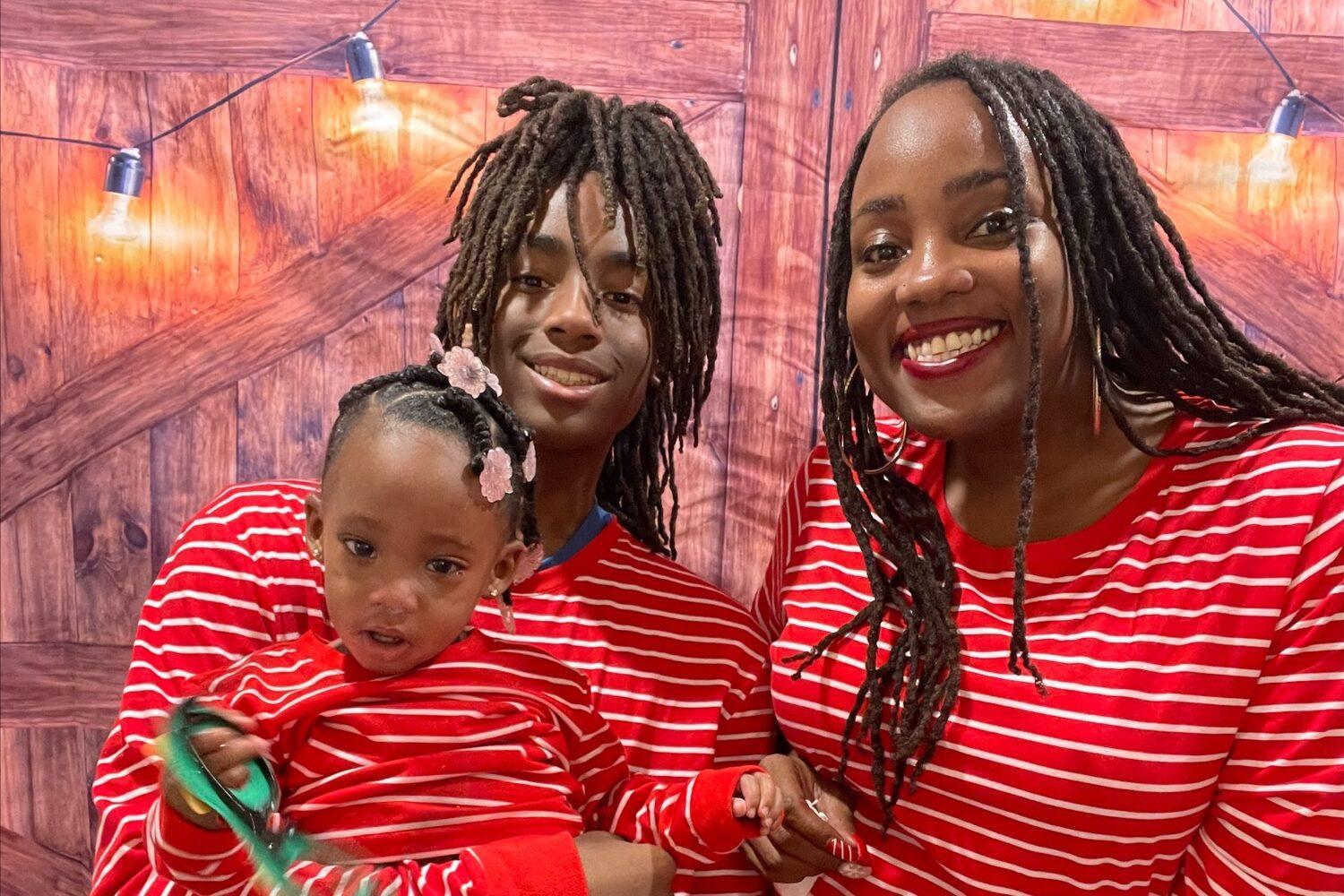
Parents with HIV who want to breastfeed are now able to — with the blessing of their pediatrician — after a game-changing report was released this spring.
The 11-page report, “Infant Feeding for Persons Living With and at Risk for HIV in the United States: Clinical Report” was published in the medical journal Pediatrics in May by Drs. Lisa Abuogi and Christiana Smith, both pediatricians with the University of Colorado School of Medicine, and Dr. Lawrence Noble, a pediatrician at Icahn School of Medicine at Mt. Sinai in New York.
“The American Academy of Pediatrics for the first time is fully supporting breastfeeding for women and other parents with HIV who are on treatment and virally suppressed,” said Dr. Abuogi in a recent virtual interview. “And that's a result of increasing research showing that it can be done safely and improving antiretroviral regimens that improve the chances of staying virally suppressed.”
She added: “I think it opens up having the choice and having the ability to be supported to do that, which for decades they have not had. So it's a pretty big sea change that's happening in the field of HIV.”
The change came as welcome news to Ci Ci Covin, an HIV-positive mother who, because of her status, was devastated not to be allowed to breastfeed her son, Zion, now a teenager. She did, however, breastfeed her 3-year-old daughter Zuri secretively, with the support of clandestine providers who promised not to turn her in to child protective services for planning to breastfeed while living with HIV, something women in other countries have long been able to do.
Now that it doesn’t have to be done in secret, she said, the new guidelines brought a wave of relief.
“It felt like a breath that I was finally able to exhale on,” she said, “that I had been holding in for so many years.”
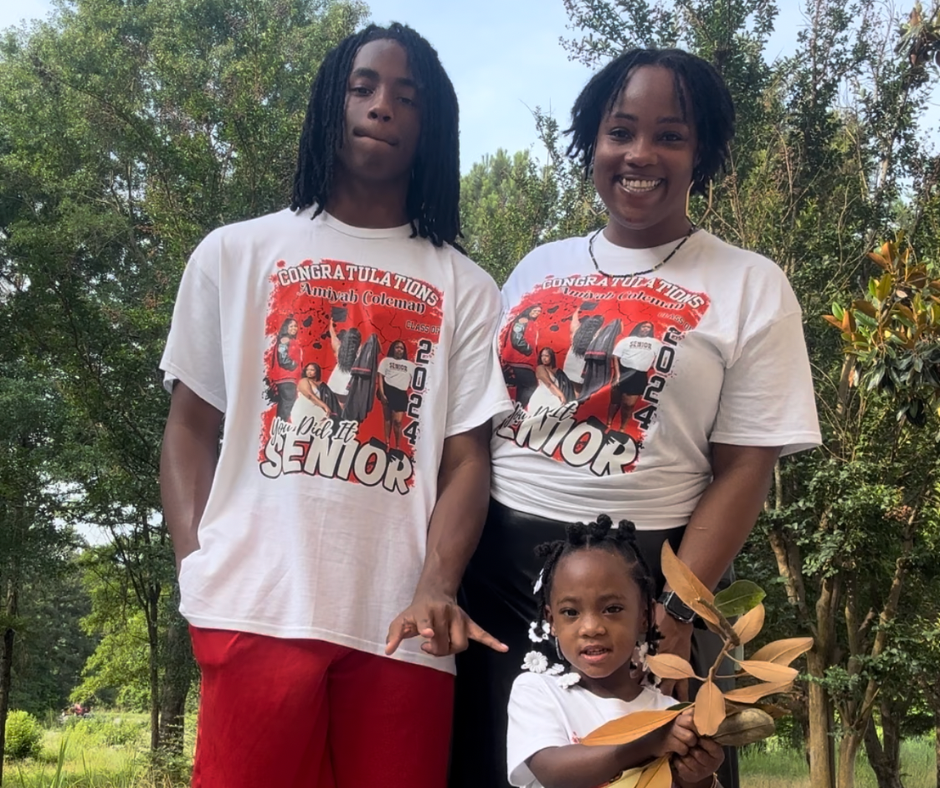
Breastfeeding with HIV has traveled a long road to acceptance. In 1985, the American Association of Pediatrics recommended parents who were HIV-positive not breastfeed, because of the slim chance of transmission of the infection via the breast milk to the baby. Those choosing to disregard the guidelines could be reported to state child protective agencies.
Others didn’t see the risk in the same way — in some African countries for example, babies were breastfeeding from HIV-positive parents on antiretroviral drugs whose load was so low as to be undetectable while also receiving prophylaxis drugs that blocked the transmission of the virus to the baby; studies there were finding no HIV transmission.
But the U.S. stood fast on its ban — until January 2023, when the National Institutes of Health released a paper “Update to Clinical Guidelines for Infant Feeding Supports Shared Decision Making: Clarifying Breastfeeding Guidance for People with HIV.”
“Clinicians should support the choices of people with HIV to breastfeed (if they are virally suppressed) or to formula/replacement feed,” the paper stated, adding: “It is inappropriate to engage child protective services (CPS) or similar services in response to infant feeding choices of [people with HIV].”
The NIH influenced the Department of Health and Human Services, which that year relaxed its own guidelines against restricting HIV-positive people from breastfeeding, but the HHS has a smaller audience, and it’s the American Association of Pediatrics from whom pediatricians specializing in labor and delivery take their cues, not HHS.
The paper Abuogi and her co-researchers published about a year and a half later was what made the change in the AAP guidelines. Their report, she said, consisted less of original research on the topic and more of a distillation of research. “We review all of the literature, the history, and the latest research to inform the guidelines,” she said.

According to the paper, health care professionals should plan to talk with patients who want to breastfeed their child, and when they do, they should explore the parents’ reasoning, suggest possible alternatives that allow a bond with the infant, and validate the parent’s role, regardless of how the infant will be fed. The paper also recommends that parents know the risk of HIV transmission — which is about 1 percent or less — and are aware that antiretroviral drugs suppress the chance of transmission, but don’t completely eliminate the risk.
“Breastfeeding should be supported for people with HIV who strongly desire to breastfeed after comprehensive counseling,” the paper recommends, “if all of the following criteria are met: (anti-retroviral therapy) was initiated early in or before pregnancy; there is evidence of sustained viral suppression in the parent; the parent demonstrates a commitment to consistently taking their own (anti-retroviral drugs) and to giving infant (anti-retroviral) prophylaxis; and the parent has continuous access (to those drugs).”
The new guidelines are being made widely known through email blasts, the AAP’s podcast, and social media posts to the country’s 39,000 pediatricians who specialize in labor and delivery, about 2,000 of whom practice in Colorado, according to Dr. Aguobi.
Ci Ci Covin, 36, a mother of two who has a bachelor’s and master’s degrees, now lives outside Philadelphia, Pennsylvania, with her partner, son, and daughter. She had been diagnosed with HIV in her early 20s — she said she got the virus having unprotected sex with men growing up in rural Georgia. She didn’t breastfeed her son because she had the virus, and was told she should be happy to give birth at all, given her status.
Her first-born child, Zion, was born premature and spent nine days in the NICU, during which time Covin stayed in a nearby Ronald McDonald House. One day, she recalled, “I stood in that shower with my breasts full of milk and in pain and just watched it all just waste down the drain, knowing that HIV was the only thing that was causing that right now. It was so painful.”
She spiraled into post-partum depression, “beating myself up again for this diagnosis because that was what was stopping me from being able to feed my child ... all of my parental autonomy had been taken away from me. That was a rough time.”
Guidelines shared with her by her health care provider kept her from breastfeeding. Over the next few years, she began hearing that women who were living with HIV were breastfeeding in some African countries. About a decade later, she found a new partner and became pregnant again, this time with a baby girl she’d call Zuri, now 3 years old. This time, she wanted things to be different. She had befriended an HIV-positive mother in Virginia for whom things were different: Her new friend Heather’s health care provider had asked her how she wanted to feed her newborn, rather than telling her that her choice was limited so as not to include breastfeeding — a shocking statement to Ci Ci’s ears.
Heather’s disclosure made Covin think she could do the same, so she ran the possibility past her provider. She was shocked by what she was told: There was “no provider in America who would work with me if that’s what I wanted to do,” Covin explained, her voice quivering with emotion.
“And she told me that if that was something that I wanted to do, then I was going to have to be quiet about it because their facility is known to call child protective services on parents who breastfeed while living with HIV.”
The threat left her stunned. “I’m only six weeks pregnant; we don’t even know if this baby’s going to stick yet, and I’m being threatened by CPS … which really put a fork in that relationship that I had built with that provider.”
With her friend Heather’s help, Covin found a new health care team in Philadelphia consisting of an OB-GYN, a social worker, a high-risk nurse, and a pediatrician — all of whom felt the benefits of breastfeeding with HIV outweighed the slim risk of transmission. In the small community of HIV-positive parents, this team was known through whispers as the ones to go to if you had HIV and wanted to breastfeed without getting reported to child protective services.
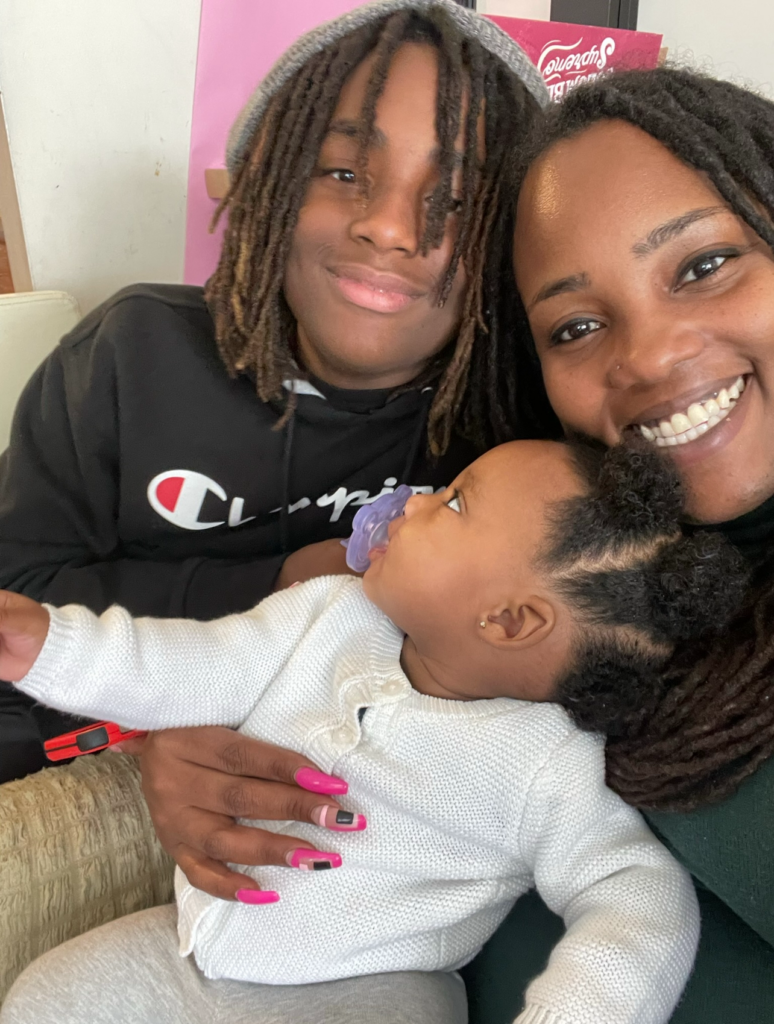
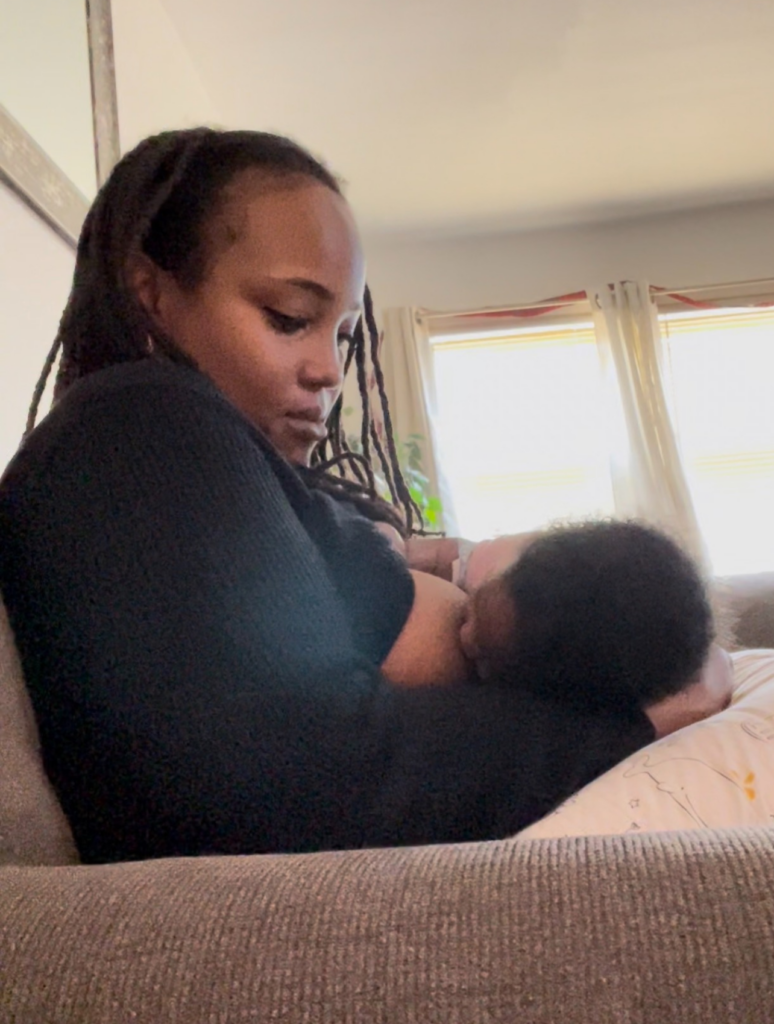
Initially, she was undecided on breastfeeding the daughter she was expecting.
“Some days I would go in there and say, ‘Yes, I’m doing it.’ Then other days I’d be like, ‘No I’m not doing this.’ And they did that tango with me, just informing me of all of the things, the research, what they’ve seen in previous patients and children. It was awesome. I had options. I could choose what life was going to look like for me and my baby moving forward.”
Under the new provider’s care, Covin gave birth to Zuri, then spent the next seven months breastfeeding her daughter, who also received prophylactic medications during and after that time period.
“It felt beautiful. It felt so natural. I couldn't believe that it was happening, that I was able to do it in front of people in scrubs,” she said, rather than hiding it from them.
Per protocol, Covin and Zuri both took medications to lower the transmission risk.
“We started on one type of treatment for the first four weeks after she was born, and then we switched into another treatment that had less medication in it, less types of drugs,” she said. “We did that for the length of time that we breastfed plus a month afterwards," she said, adding that both children are now thriving and doing well and that neither has the virus.
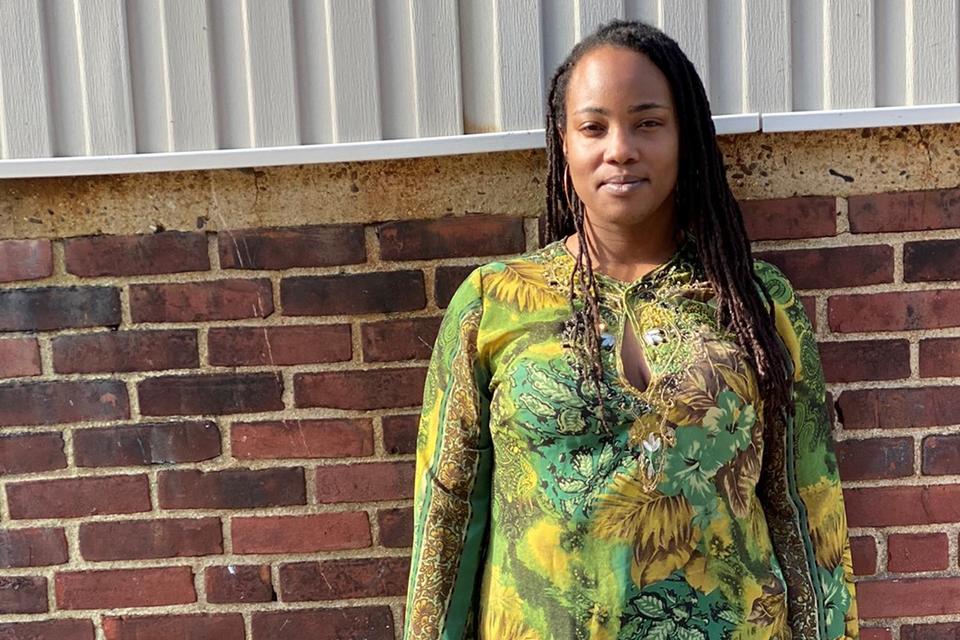
Covin now works as a senior manager of community programming with The Well Project in Philadelphia (a nonprofit organization that serves women living with HIV and those vulnerable to it across the gender spectrum). She is one of a small subset of HIV-positive parents who want to breastfeed — estimated to be about 5,000 large annually nationwide — who are potentially impacted by the AAP’s new guidelines. The new rules mean that people like Covin won’t have to go to the trouble of finding a doctor breaking guidelines to be supportive of women breastfeeding while living with HIV; instead, doctors will just start openly presenting doing so as a legitimate option.
“The 5,000 number is the number of women living with HIV that we think become pregnant annually in the United States, and in Colorado, that number is probably closer to 50 or 60,” said Dr. Abuogi, who added that many are women of color. But the number and background of the people impacted isn’t the point.
“All women and mothers want to have the full range of choices and options to make the best infant feeding decisions for their children,” she said.
Of the new guidelines, she said they could make a difference in the parenting experience. “This gives these women that option if they're able to be on their treatment and doing well.”









